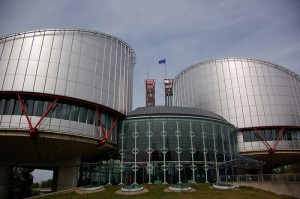 The European Court of Human Rights ruled yesterday that Abu Qatada, allegedly very close to Osama Bin Laden for many years, will not be returned to Jordan to face further action against him by the authorities in that country The ruling has outraged a large portion of the public and, as Conor Gearty writes, has also divided human rights activists.
The European Court of Human Rights ruled yesterday that Abu Qatada, allegedly very close to Osama Bin Laden for many years, will not be returned to Jordan to face further action against him by the authorities in that country The ruling has outraged a large portion of the public and, as Conor Gearty writes, has also divided human rights activists.
The debate over whether the UK has the right to deport Abu Qatada back to Jordan has been continuing for many years. Qatada, who was granted asylum in the UK in 1994, was convicted in 1999 (in his absence) of two separate terrorist conspiracy charges to attack hotels and buildings in Amman. Meanwhile in the UK, Qatada was known as an inflammatory Muslim cleric who had issued fatwas in support of killing non-believers and whose videos may have influenced one of the 9/11 hijackers.
When the case came before them the Law Lords ruled that Qatada could be tried in Jordan, a decision which Qatada challenged before the European Court of Human Rights (ECHR) on the basis that he would be tortured if sent back. Yesterday the court in Strasbourg ruled that he is not likely to be tortured or ‘ill-treated’ (both prohibited under Article 3 of the European Convention on Human Rights) in Jordan if he is returned there to face the authorities.

This is, ultimately, a question of judgement for the court, based on an assessment of probability on the current facts. It could theoretically arise in a case involving Sweden or Norway just as much as it does in relation to Jordan or (for that matter) Libya or Egypt. It does not come up because it never even occurs to anyone that such ill-treatment might occur. The concern comes to the fore when these ‘other places’ are the likely recipients of expelled European residents.
A “memorandum of understanding” exists between Jordan and the UK, stating that Jordan will not mistreat anyone deported from the UK. But Memoranda of Understanding are just devices for rebutting the inference of likely ill-treatment, made simply on the basis of the record of countries like Jordan. It is neither logical nor fair to rule them out as evidence simply because their voluntary status proves irretrievable bad faith.
The weight to give them is quite another matter.
The Strasbourg court has rejected such memoranda in the past. In Abu Qatada’s case, the court accepted that the facts before it (including of course the memoranda agreed by the British and the Jordanians as to how the applicant would be treated) did not give rise to the ‘real risk’ of ill-treatment necessary for their jurisdiction to prohibit the removal to kick in. As the Court says; ‘Its only task is to examine whether the assurances obtained in a particular case are sufficient to remove any real risk of ill-treatment’.
Commentators critical of this ruling have to accept that what they are doing is questioning a judgment of the court on the facts. If the Government were to do this, no doubt the human rights activists would be furious.
The ECHR did rule in favour of Article 6, the right to a fair trial, on the basis of the possibility that when returned to Jordan, Abu Qatada will be re-tried for the two previous offences, and that evidence obtained through torture will be used. This ruling is a very strong one and worth defending if this case goes further up the Strasbourg hierarchy, as it may well do.
The Court found that Abu Qatada has successfully ‘discharged the burden that could be fairly imposed on him of establishing the evidence against him [in Jordan] was obtained by torture’ and that he has also therefore shown that there would be ‘a real risk of a flagrant denial of justice if he were deported to Jordan’ and faced charges where this evidence was deployed against him. This strikes me as a strong finding and a reflection of how torture (of anyone) should never be allowed to pay.
But how can this Article 6 ruling be gratefully received by commentators (based as it is on a finding of a set of facts) while the court’s other ruling on Article 3 (equally based on a finding of facts) is rejected?
Are the critics allowing their feelings to run away with them, turning the Strasbourg court into an a la carte menu from which only the bits agreeable to their previously identified positions are to be selected?
Does such partisanship do the advocacy of human rights any favours?
Please read our comments policy before posting
……………………………………………………….
About the author
 Professor Conor Gearty – LSE Law
Professor Conor Gearty – LSE Law
Conor Gearty moved to LSE in 2002, to a post in the law department but also to become the first Rausing Director of LSE’s new Centre for the Study of Human Rights. His academic research focuses primarily on civil liberties, terrorism and human rights. His first book (co-authored with colleagues at both Cambridge and King’s, was Freedom under Thatcher. His subsequent books include Terror (Faber and Faber, 1991), Principles of Human Rights Adjudication (2004), Can Human Rights Survive? (2005), and, Civil Liberties (OUP, 2007). His latest book is a selection of essays on human rights and terrorism, published by Cameron May in 2008. He has been a visiting professor at a number of universities abroad and has also been an external examiner at many universities in the UK and Ireland.
Read articles by Conor Gearty








Dear Conor,
There could be other reasons for objections to the European Court of Human Rights’ ruling on the Article 3 point in the Abu Qatada case. While the Court does consider over many paragraphs the terms of the Memorandum of Understanding between the UK and Jordan, it does so with thin reasoning and scant regard for logic.
Concerns over Adaleh’s capacity effectively to monitor the treatment of Mr Othman had he been returned are noted in paragraph 203, but largely swept away in a statement of hope.
Similarly, the Court’s treatment of the applicant’s argument that the Memorandum of Understanding does not adequately protect against the risk of rendition relies on an assertion by the USA that Mr Othman would be tried in federal court and that this is unlikely to fit with a possible rendition, ignoring, it seems, US state practice in the 1990s on so-called ‘rendition to justice’.
Paragraph 196, in particular, relies on conjecture that a detainee’s notoriety would protect him against the risk of torture or other ill-treatment, given the risk that ill-treatment would undermine bilateral diplomatic relations. The Court conflates the prevention of torture in an individual case (which depends upon the training and conduct of the individuals interrogating the detainee, and upon systemic factors) with the likelihood of diplomatic difficulties if torture has already occurred.
The Court’s failure fully to engage with the jurisprudence of the UN Human Rights Committee and the Committee against Torture on diplomatic assurances/ Memoranda of Understanding is disappointing. Increasing the specificity of non-binding assurances does not make them binding. The jurisprudence of UN treaty bodies has shown that inadequately monitored, unenforceable assurances cannot remove a real risk of torture where that risk is otherwise acknowledged (see paragraphs 191-192).
If my criticism of the Court’s reasoning also entails a criticism of its treatment of the facts, then so be it. I respect the implementation of international law more than the taboo not to criticise a judge’s finding of fact. So yes, this partisanship might do the cause of human rights a favour, especially if it encourages more solid reasoning by the European Court of Human Rights.
All good wishes,
Elizabeth